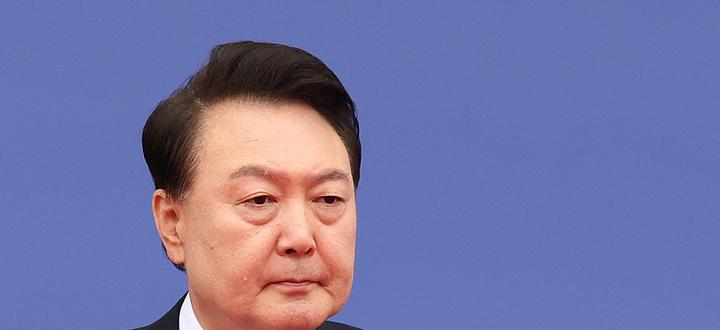South Korea's Presidential Impeachment Vote: A Democratic Crisis Unfolds
South Korea’s National Assembly failed to pass the impeachment motion against President Yoon Suk Yeol, amid allegations of abuse of power and a controversial martial law declaration that heightened political tensions in the country.

The political drama unfolding in South Korea reached a critical point when the National Assembly voted on the impeachment motion against President Yoon Suk Yeol. The vote, which required a two-thirds majority of 200 votes to pass, fell short with only 195 votes in favor, primarily due to the ruling People Power Party’s boycott of the proceedings.
The crisis began when President Yoon declared martial law, a move that sparked widespread protests across Seoul, particularly in the Yeouido and Gwanghwamun areas. The declaration came amid investigations into First Lady Kim Keon Hee’s alleged stock price manipulation case, which had become a focal point of political controversy.
The ruling People Power Party’s decision to abstain from voting reflected the complex political calculations at play. Only four members of the party participated in the vote, with two voting in favor and one against, while the majority chose to boycott the proceedings entirely. This strategic move effectively prevented the opposition from reaching the necessary threshold for impeachment.
The Democratic Party, which holds 192 seats, has already announced plans to pursue another impeachment motion on December 11, demonstrating their determination to continue pressing for President Yoon’s removal. This persistent effort highlights the deepening political divide in South Korea’s democracy.
The martial law declaration particularly raised concerns when reports emerged about President Yoon’s alleged orders to arrest opposition political figures, including Democratic Party leader Lee Jae-myung. While the presidential office initially denied these claims, their subsequent retraction of the denial only intensified public scrutiny.
The military’s role in this crisis has been notably complex. The First Airborne Special Forces, deployed around the National Assembly, showed remarkable restraint, with commander Lee Sang-hyeon refusing to carry live ammunition, citing concerns about civilian safety and the political nature of their deployment.
This political crisis has exposed fundamental weaknesses in South Korea’s democratic institutions and highlighted the delicate balance between presidential power and legislative oversight. The failed impeachment vote, rather than resolving the crisis, appears to have deepened the political divide and set the stage for continued confrontation between the ruling and opposition parties.
The situation has drawn international attention, particularly regarding its implications for South Korea’s democratic stability and regional security. As the country grapples with this constitutional crisis, the ongoing investigations into both the President and First Lady’s actions may yet reveal more layers to this complex political drama.